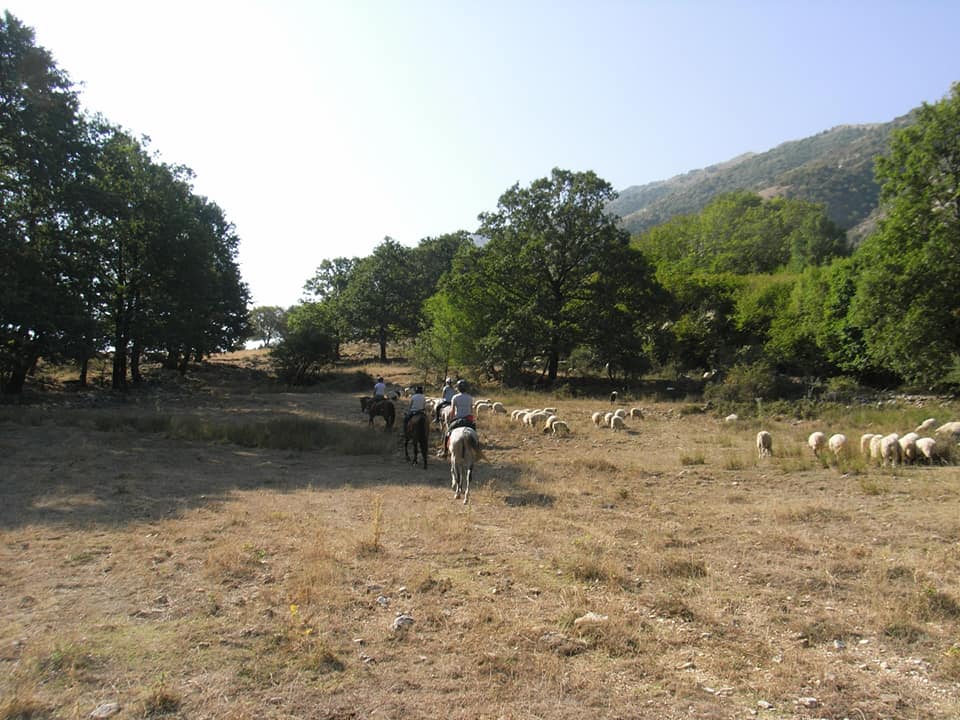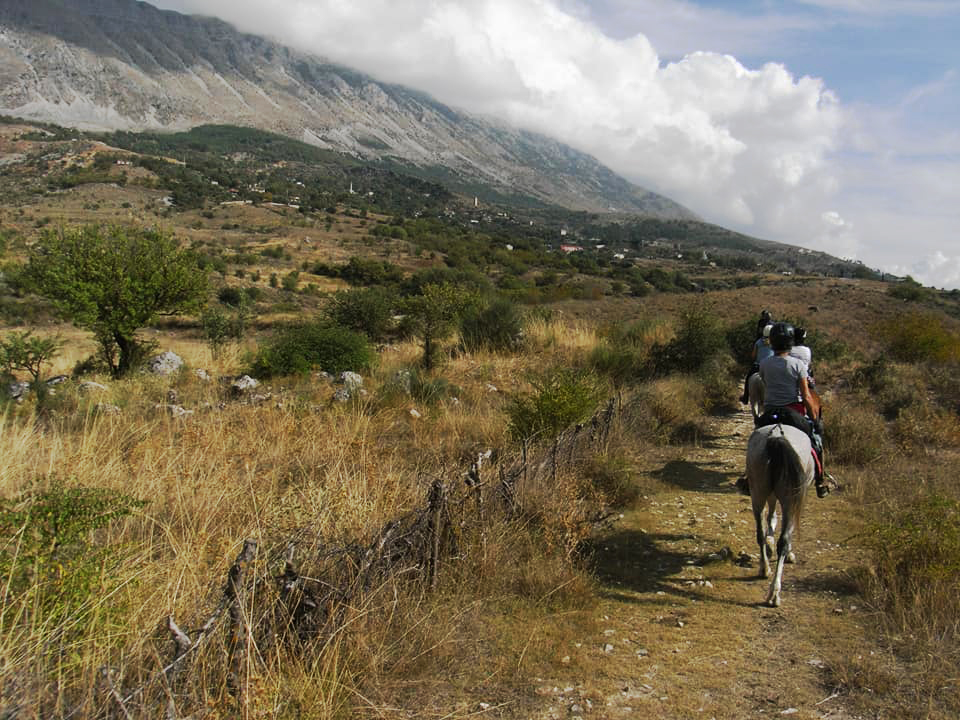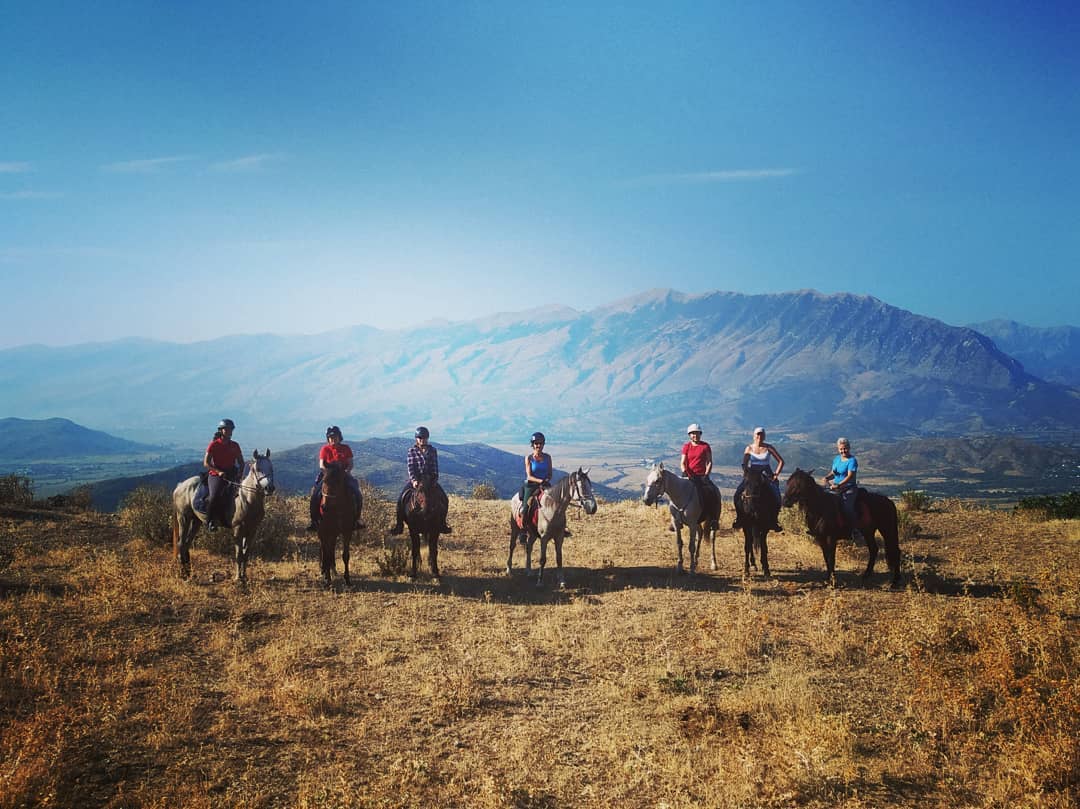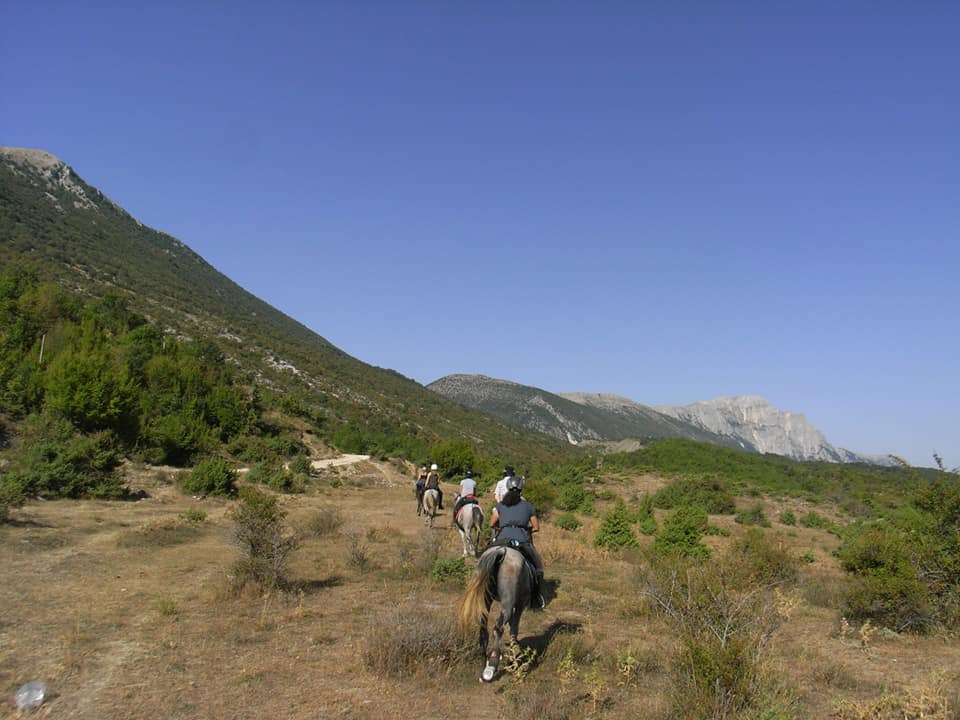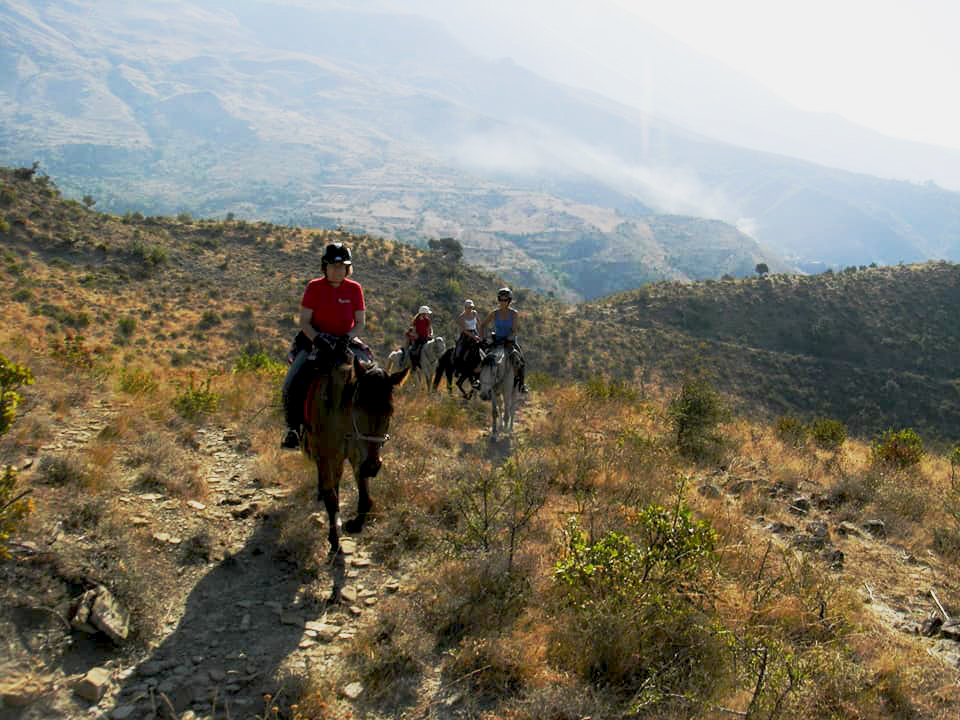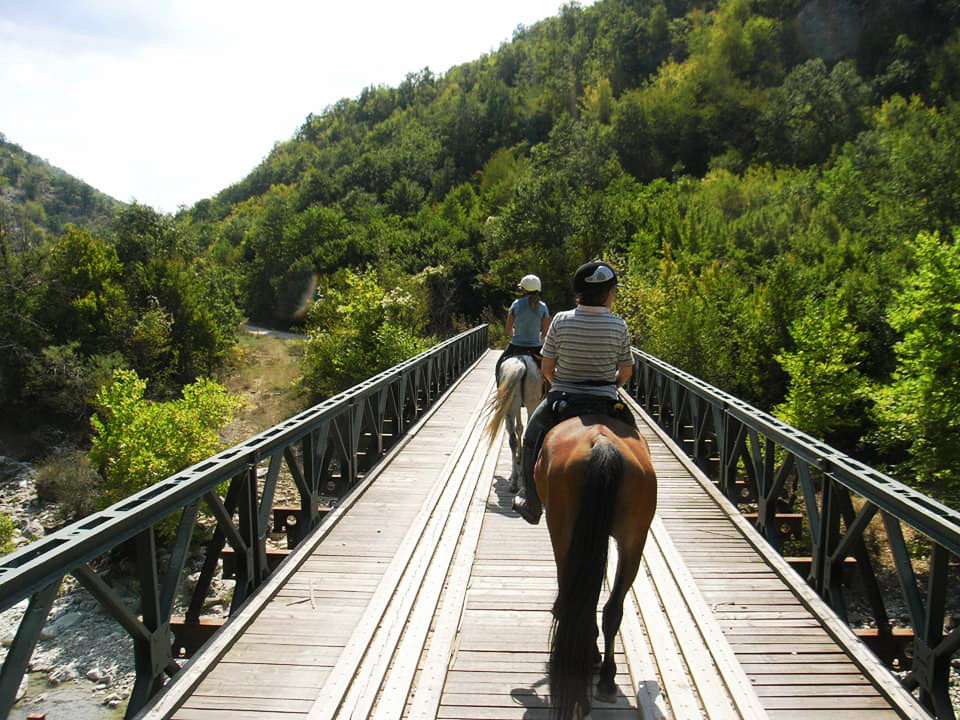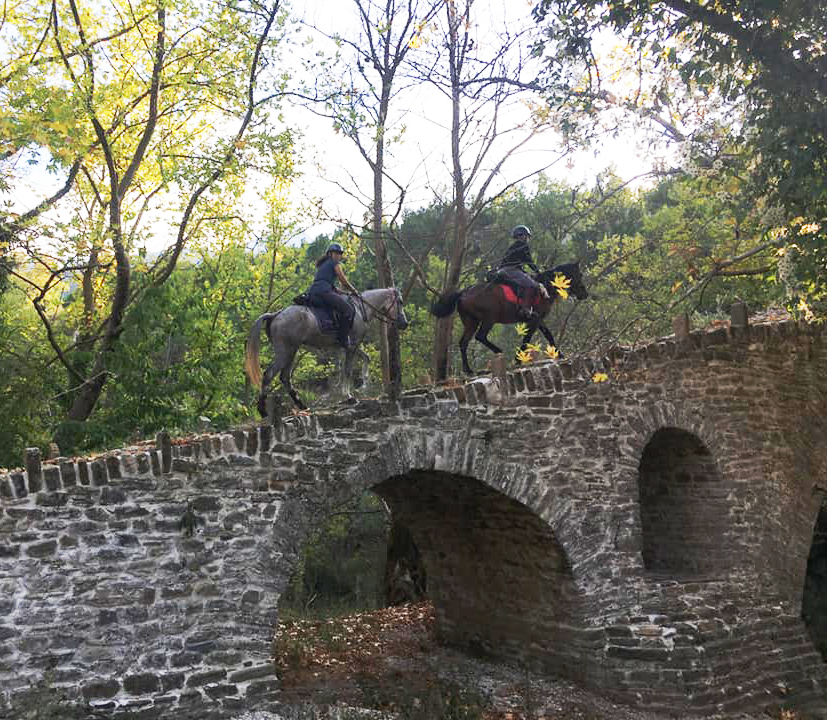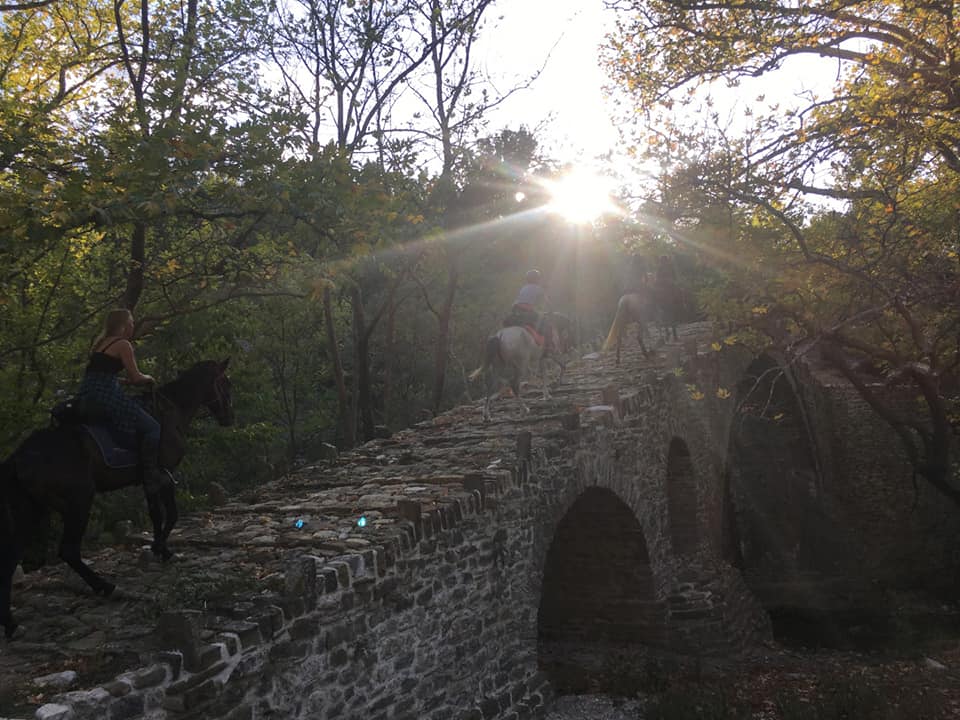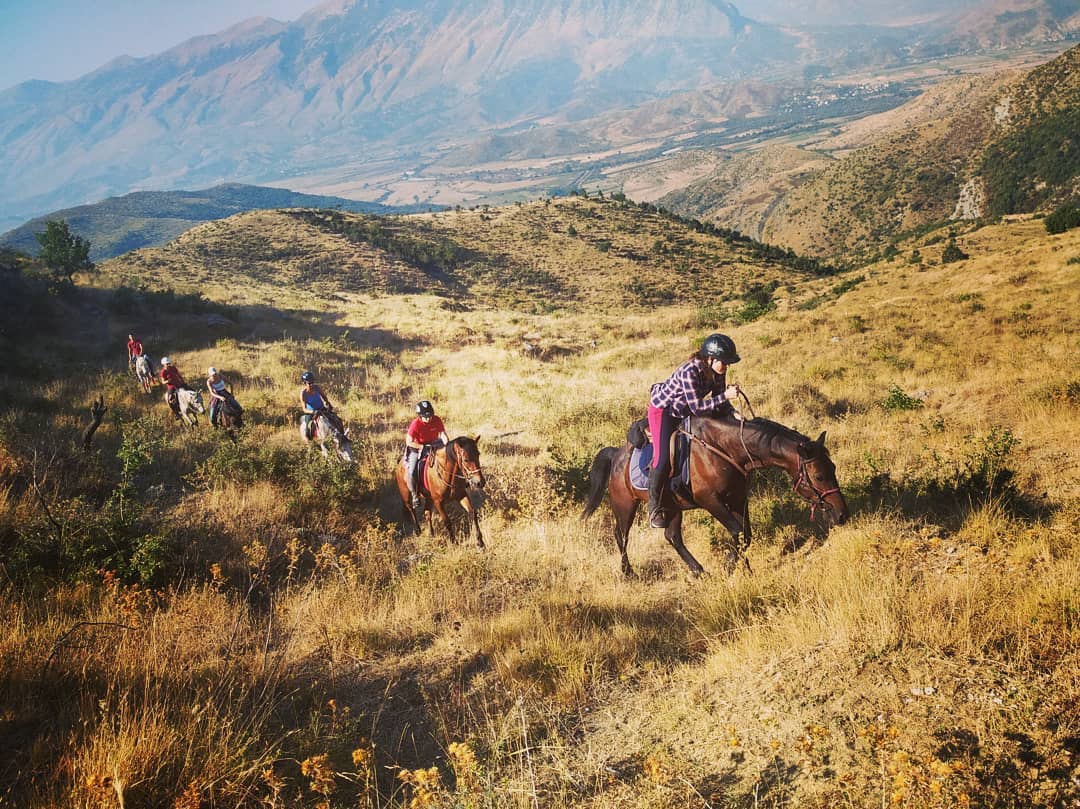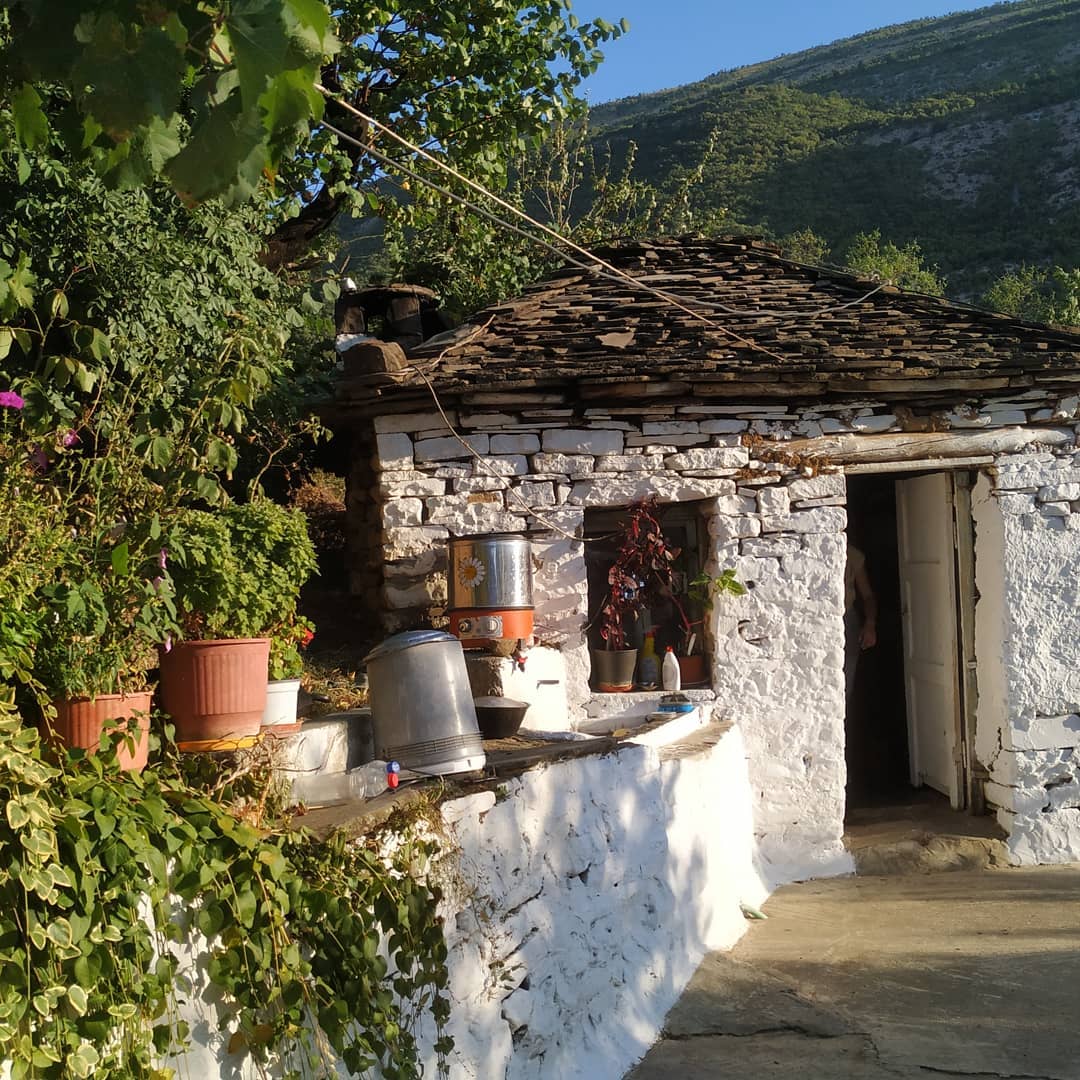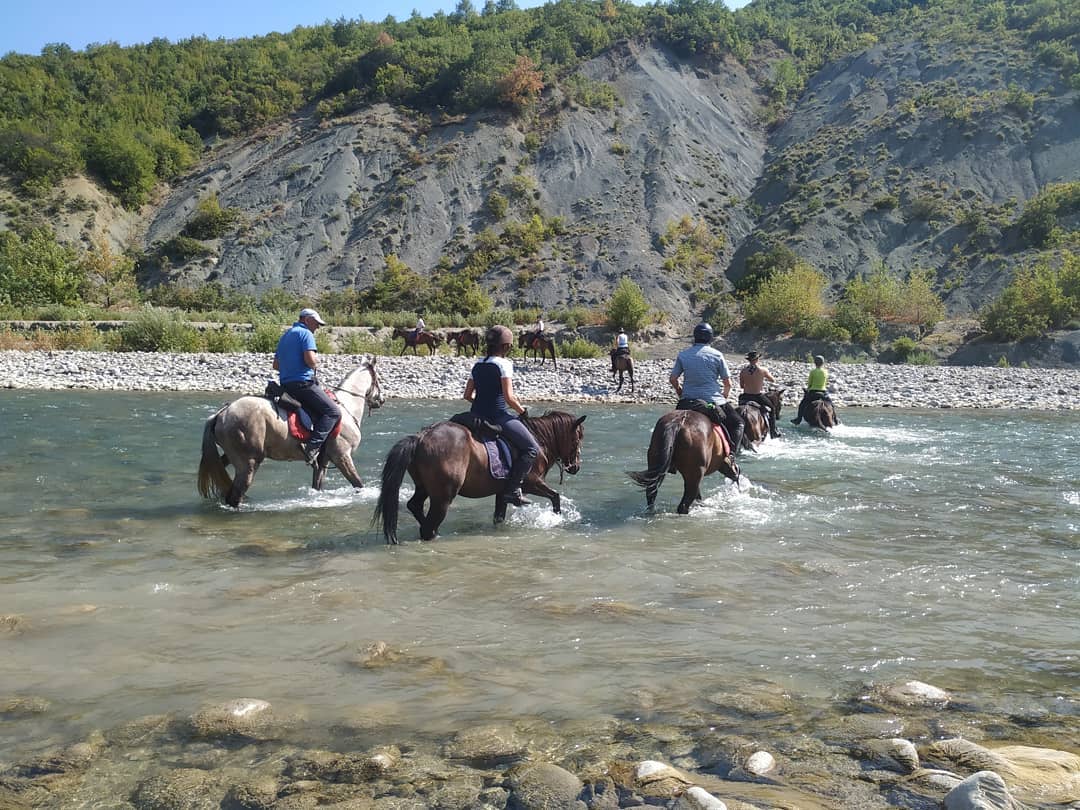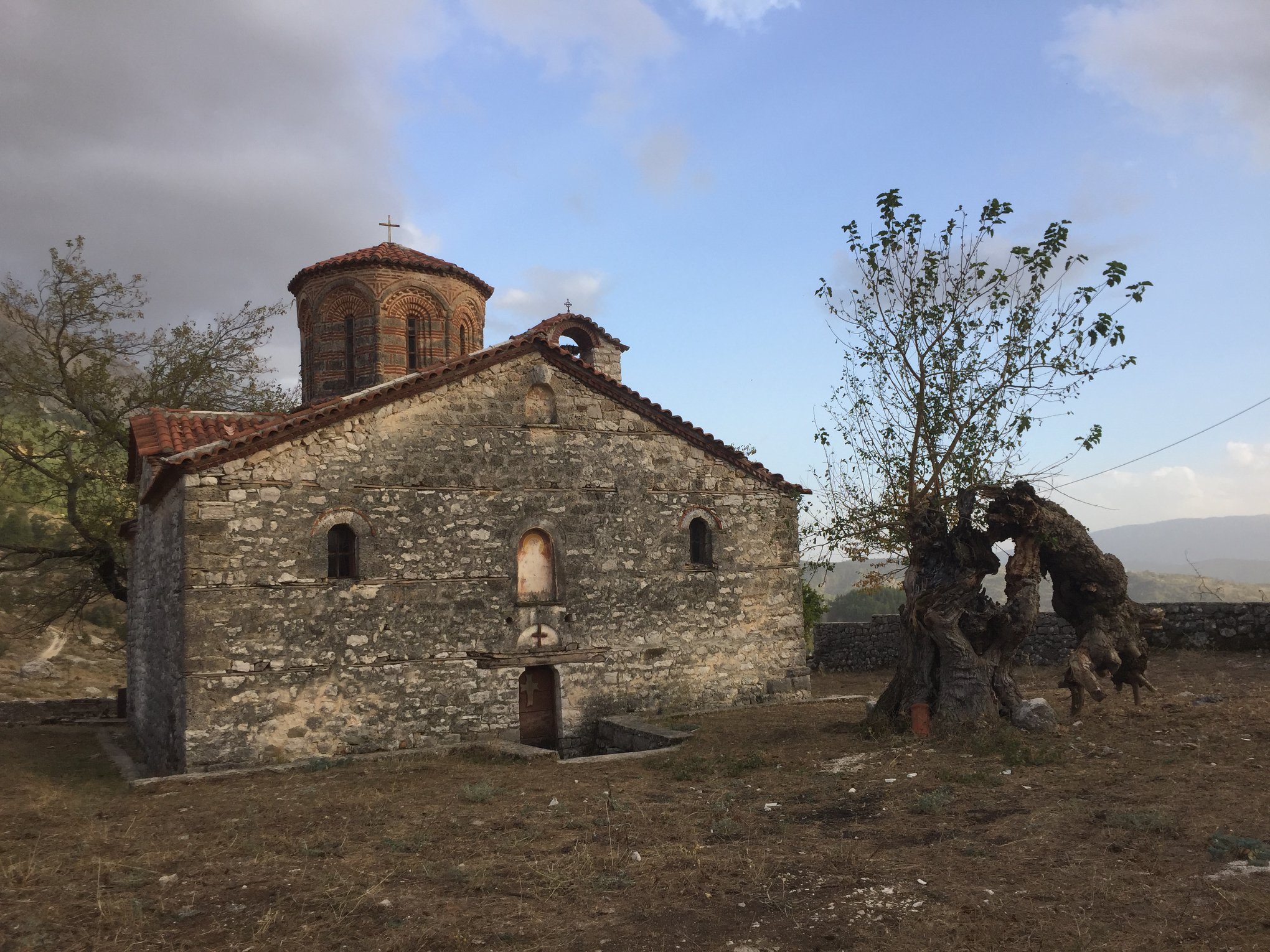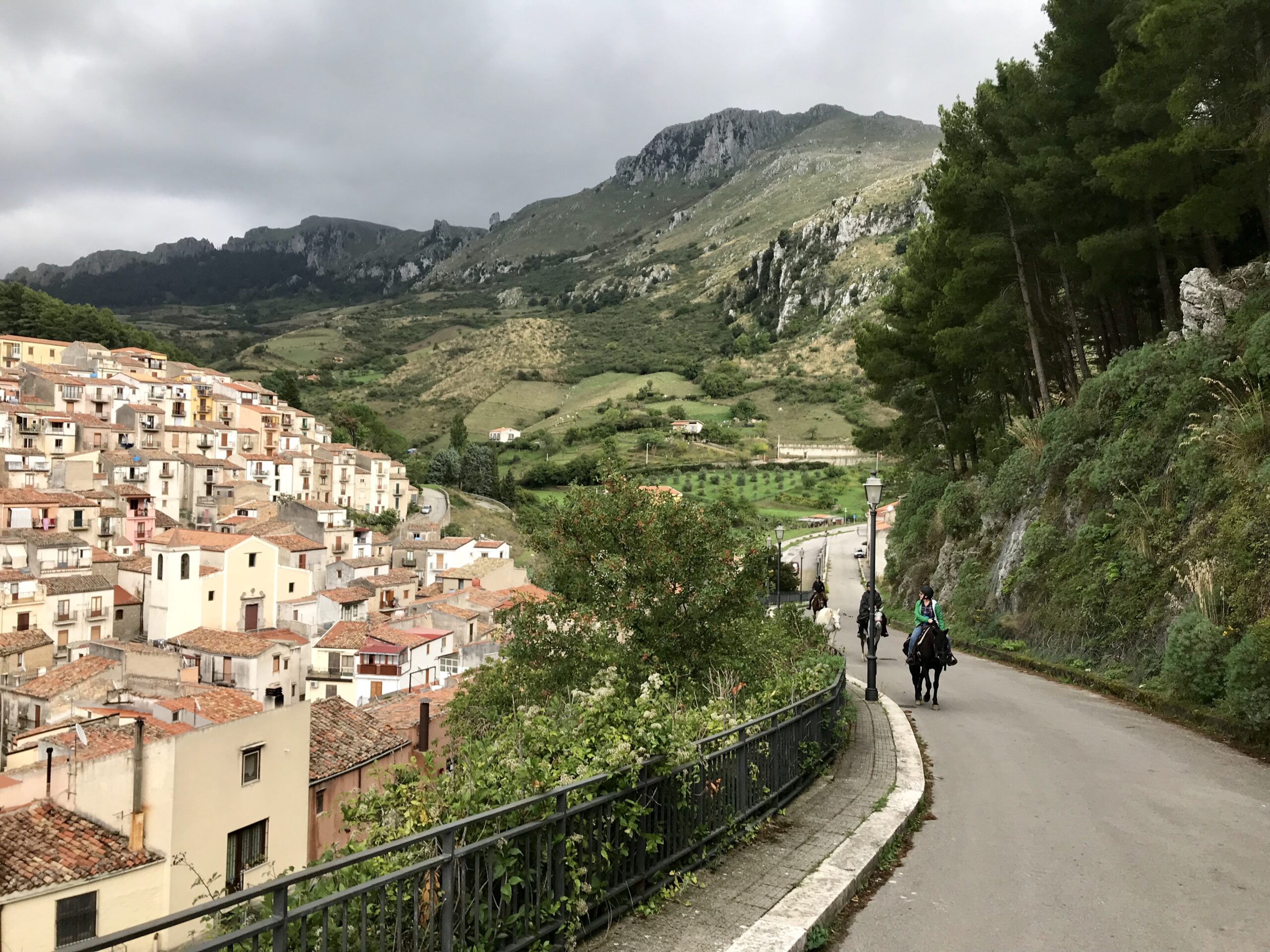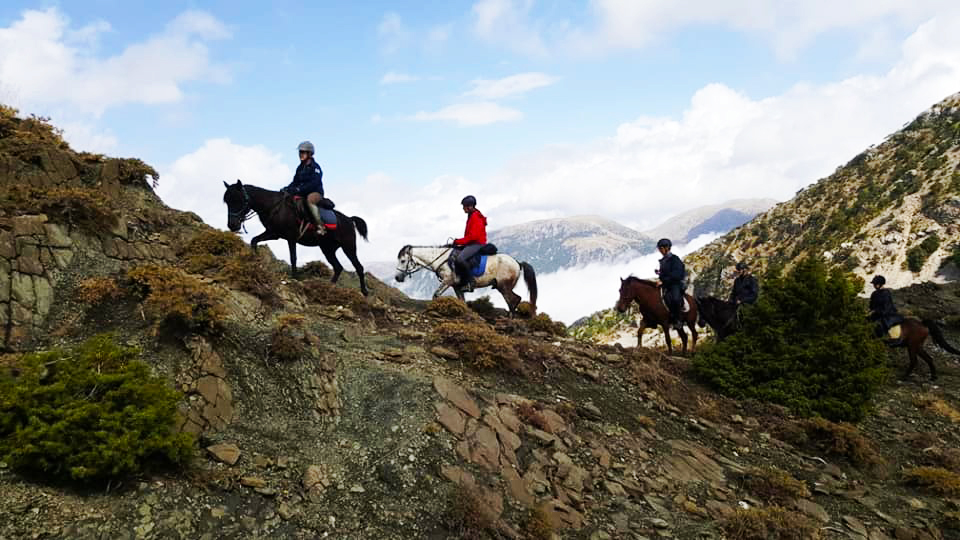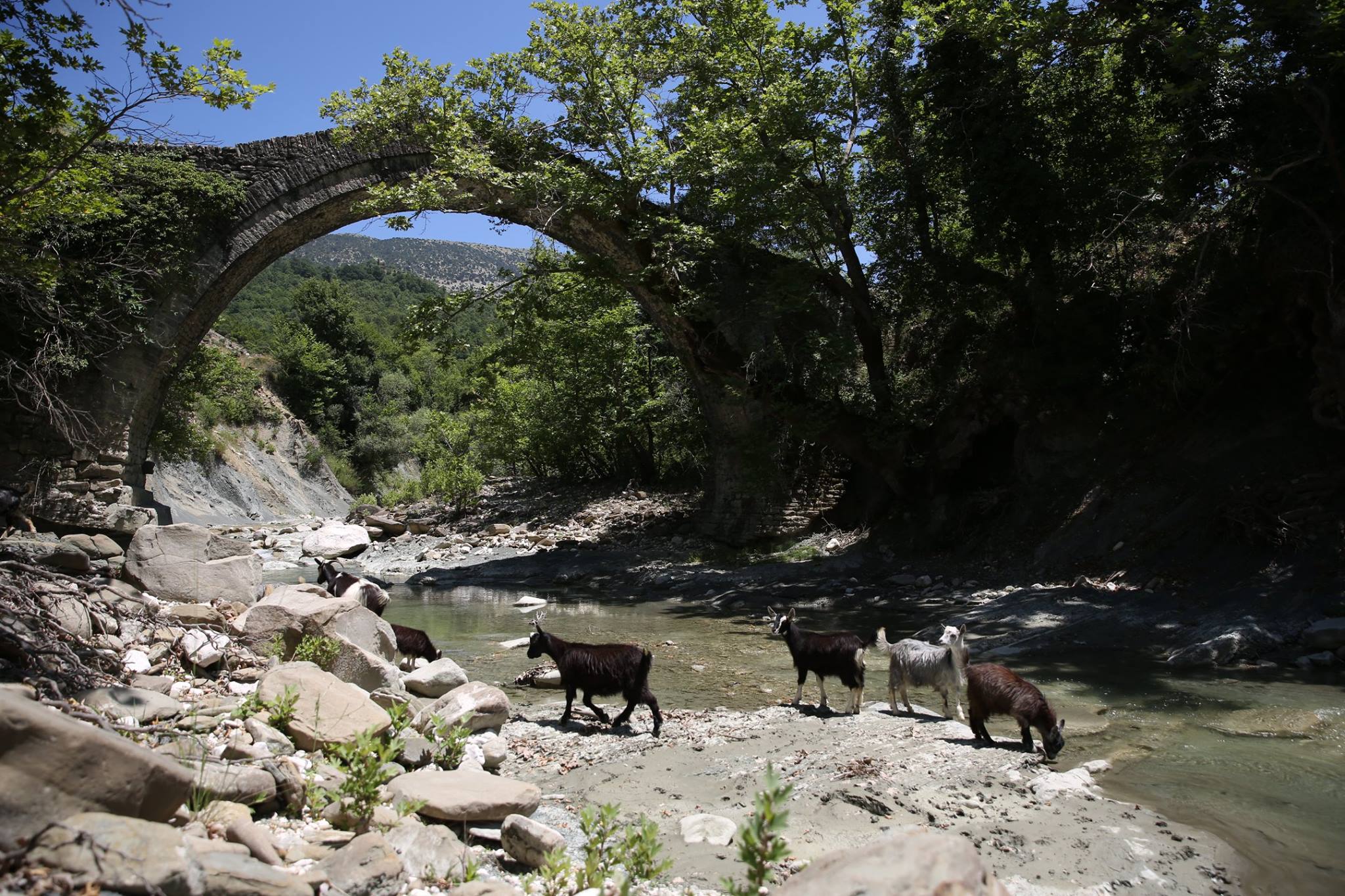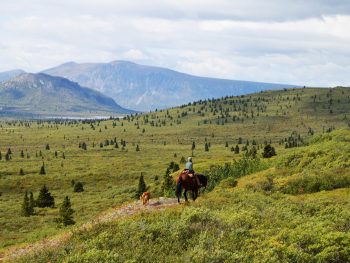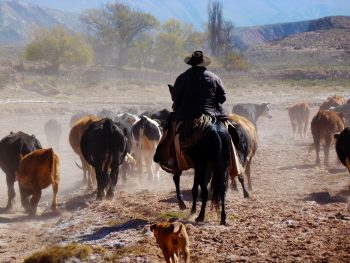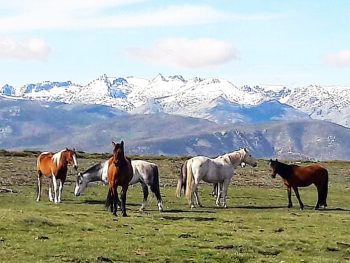With a rich heritage that can trace its influences back to the Macedonians, the Greeks and the Ottoman Turks, Albania is one of the most fascinating and least known countries in Europe.
Because of its location on the Adriatic and Ionian seas, Albania has long served as a bridgehead for various nations and empires seeking conquest abroad. In the 2nd century BCE the Illyrians were conquered by the Romans, and from the end of the 4th century they were ruled by the Byzantine Empire. After suffering centuries of invasion by Visigoths, Huns, Bulgars, and Slavs the Albanians were finally conquered by the Ottoman Turks in the 15th century. Ottoman rule cut off Albania from Western civilization for more than four centuries, but in the late 19th century the country began to remove itself from Ottoman influence and to rediscover old affinities and common interests with the West.
On this ride you will discover the mountainous landscapes of southern Albania on hardy local horses, whilst staying with local families and learning about their traditions and culture. You will follow the paths of ancient caravan routes once used by pre-Roman armies. Traveling far off the beaten track you will journey through beautiful countryside, rich in wildlife.
Your ride will pass through ancient ruins of the Ilirian civilization, medieval villages and many remote churches and monasteries. You will see mountain bridges built during the period of the Ottoman Albanian commander Ali Pasha that are wonderful to see with their rare and unique design. The culmination of this extraordinary trail will be the assent to Swallow’s Rock.
Arrival Location
Tirana Airport, Albania
Date and Rates
€1075 sharing ( small group supplement of €132 applies if there are only one or two riders)
Single rooms may be possible on the first and last nights only for an extra €20 per night paid locally – please enquire to confirm availability.
Group transfer : €70 paid to Imagine Riding
Includes travel in both directions; departures at set times
Private Transfer: €100 paid to imagine Riding
Cost is per person, each way, based on 1 passenger in a car.
April 2, 2022 – April 9, 2022
April 9, 2022 – April 16, 2022
April 16, 2022 – April 23, 2022
April 23, 2022 – April 30, 2022
April 30, 2022 – May 4, 2022
May 14, 2022 – May 21, 2022
May 28, 2022 – June 4, 2022
June 11, 2022 – June 18, 2022
June 25, 2022 – July 2, 2022
July 23, 2022 – July 30, 2022
Aug. 6, 2022 – Aug. 13, 2022
Aug. 20, 2022 – Aug. 27, 2022
Sept. 3, 2022 – Sept. 10, 2022
Sept. 17, 2022 – Sept. 24, 2022
Oct. 15, 2022 – Oct. 22, 2022
Oct. 22, 2022 – Oct. 29, 2022
Oct. 29, 2022 – Nov. 5, 2022
Nov. 5, 2022 – Nov. 12, 2022
Nov. 12, 2022 – Nov. 19, 2022
Nov. 19, 2022 – Nov. 26, 2022
Nov. 26, 2022 – Dec. 3, 2022
Price Includes
- riding and guiding
- 7 nights accommodation,
- all meals from dinner on arrival day to breakfast on departure day
- drinks with meals
- luggage transfer
Price Excludes
- flights
- transfers
- additional drinks
- personal expenses
- tips
The local horses are a mixture of Tarpan and Arab and ideally suited to the mountain landscape. Although small they are strong and tough. Living always outdoors in this rocky environment ensures they are sure-footed and trusting even across difficult terrain. For centuries these horses have been used by local inhabitants to pass through the mountains and transfer their livestock and bees from summer to winter pastures. During times of conflict and war, their horses transferred entire families to new villages.
The start from the town of Gjirokaster – known as the City of a Thousand Steps – which is a UNESCO World Heritage site. The town is surrounded by charming villages, Byzantine churches, ancient ruins and spectacular mountain landscapes with forests, rivers and wildlife
A highlight of this ride is that you will meet friendly locals and learn about their traditions while enjoying accommodation as guests in local homes. Your luggage will be transported by car with the most necessary things in saddle bags on your horse.
You need to be a competent rider with plenty of experience riding outdoors across difficult mountainous terrain. At times the trail can be technically challenging and at other times there are opportunities for faster riding.
The best months to visit Albania are from April to October. Although precipitation is quite high in Albania there is less rain during these months and because of the continental air mass, most precipitation is over the central highlands. Albania has a high number of climatic regions relative to its landmass – the coastal lowlands have a typically Mediterranean climate; the highlands have a Mediterranean continental climate. This ride takes place in southern Albania which is around 5 degrees warmer than the rest of the country. You will experience different types of weather on the trail; from cooler mountainous air to a warmer climate down on the coast.
- ride tough Albanian mountain horses in beautiful and wild terrain: sometimes climbing mountains and at other times enjoying exhilarating canters
- overnights in local family guesthouses where your hosts will provide a delicious local meal
- experience true Albania with the best local cuisine, history and hospitality
- take in the ancient ruins, castles, churches and monasteries along the trail
Day 1 Arrival and transfer to Gjirokstra
Plan your flight to arrive at Tirana airport ideally in the morning, but no later than 15:00 – this leaves time for the transfer and to be able to visit the town of Gjirokstra. From the airport the transfer will be by mini-van or off-road car and will take around 3-4 hours (250km). Settle into your hotel, 10 minutes walking from the centre of historical Gjirokastra .You can have a walk around the historical town of the old Bazaar before dinner. Riders can also visit Enver Hoxha’s house, Gjirokastra castle, the church of the Old Bazaar, the mosque of the Bazar and Skenduli house representing an ideal sample of Gjirokastra traditional life. Dinner will be served at a traditional restaurant. During dinner your guides will be able to speak to you about the trail: possible requests or needs, advice and things which are good to know. We recommend that you buy a map of the area before dinner in order to gain a good understanding of the itinerary.
Day 2 Ride towards Karjan Village
After breakfast at the hotel and allocation of horses, we will start to ride through the countryside towards the medieval village of Karjan. This village is traditional, a rural stop of the passing caravans with its small churches and old roman bridge. The road to reach this destination passes through a rural environment; small houses, gardens, traditional farming and cultivation of the land. The route combines hilly landscapes, valleys, small water streams and cliffs. This path also passes along the view of River Drino, “Tree of Life” river. It is the most important water basin in the area and part of ancient pagan beliefs. On your way you will meet the ruins of the castle of Santa Triada reconstructed during 1809-1810 by Ali Pasha, a strategic point to control all the caravan itineraries. The castle ruins were used later during the time of socialism for military issues. We will stop for picnic lunch just near the village of Erind. After around 4-5 hours riding we will reach Karjan village where a traditional dinner and accommodation will be hosted by a local family.
Day 3 Ride onwards towards the villages of Small Labova and the valley of Cajupi
After breakfast we will continue further north to the villages of Small Labova and the valley of Cajupi. We will follow the ancient merchants stone road of Zhapa with its mountain panorama, wide view of the hills and valleys. The first break will be in Small Labova, a village well known all over the south for its wonderful Church and the big houses belonging to the merchants which are now mostly ruined. Labova is the birthplace of Vangjel Zhapa, the organizer of the first Modern Olympic Games. Zhapa was a well-known businessman and philanthropist who lived around 200 years ago. After visiting the church a very unique mediaeval building you will start riding up the mountain. You will be impressed by the mountain’s rare vegetation such as mountain tea, oregano, wild rose and other endemic plants like digitalis or ‘Dig–Dag’ as it’s known locally. We follow the mountain path to the valley of Cajupi where we stop by a cattle of 1000 sheep to visit shepherds and spent lunch with them. You will have the chance to taste the Brati famous spring water, a typical station of the old caravans with its small tower “karakoll”. After a nice gallop through Cajupi valley, the trail will follow the medieval Caravan pathway with its famous bandit hideout ‘Hija e Mallkuar’ or ‘The Cursed Shadow’. From here, medieval thieves could rob the caravans passing through Zagoria. The final destination of today will be the village of Nderan, placed in the heart of Zagoria region. We will stay with a Vllah linguistic minority family and this will be our destination for two nights. Dinner will be a delicious mixture of local products, raki and wine. You can join the local life and accompany the family during the milking process, dinner preparation or have a look at the families, farming animals and garden. This village is one of the most important producers of mountain honey in South Albania and it offers nearly 10 different flavors of honey depending on the season and the pastures
Day 4 Travel on to Lliar, Hoshteva, Koncka and Nivan villages
This morning you will wake up feeling the invigorating effects of the mountain air. Breakfast will be traditional mountain food; fresh homemade bread, cookies, butter, jam, eggs, cheese, honey and milk. A cup of mountain tea is very typical for this region. On your way to Lliar, Hoshteva, Koncka and Nivan villages you will encounter various terrain combining hard cliffs, rivers, woods and rolling hills. The beautiful scent of flowers, mountain fresh air, wild landscapes, shepherds and animals will also be part of your day. You will continue riding to the most important horse pathway of the XVII and XVIII century which used to connect the biggest commercial centres in Southern Albania. A very beautiful natural monument is the Rock of Zhej that can be seen along the way. We will stop for a short break at the water spring of Lliar, reconstructed by Ali Pasha in the early XIX century. We will take a challenging downhill route to the ruins of a mediaeval stone bridge (the bridge collapsed on February 2018) where it is possible to take a refreshing swim during summer months. Hoshteva, a unique church which was initially built in 999AC and last restored in 1866 has a very particular style with lots of pagan elements in the wall paintings . We will also pass by the byzantine church of Lliar and the monastery of Nivan Saint Mehilli, built in 1702. We will ride over the mediaeval bridge built in the same period to connect the monastery with Nderan village, one of the famous centres of medieval livestock fairs and which again will be where you overnight at the same vllah family house.
Day 5 Traveling through the Pogoni region
After a fresh country breakfast we will ride through a mountain valley, perfectly suited for canters and gallops, passing small remote farms, wild cliffs and many historical trails. The route through the Pogoni region is a true journey back in time. We will be passing by ancient ruins and natural wonders. Our picnic lunch will be near the most famous stone bridge of Hllomo or Kacarello’s, which is the most isolated construction of the merchant’s period and can only reached by horse. In the afternoon, after 5- 6 hours of riding we will reach the centre of the Pogon region. The mountain village of Polican is populated by a Greek minority. You will spent the night with a Greek minority family. In their accompany you have the chance to explore some very particular cult monuments of the medieval period. Later in the evening you will enjoy local gastronomic delights.
Day 6 Libohova and on to Swallow's Nest
This morning you will leave the Greek minority behind to reach the town of Libohova. The route will pass through demanding but beautiful mountain landscapes with a finish at Swallow Rock, 500m over the river of Suha. Our picnic lunch point will be the Church of Labova of the Cross – a rare monument representing the oldest church in Albania, built by Justinian the Great in 554. Justinian married Teodora his wife at the small chapel of this village and the villagers inherited her wedding dress for centuries. This church is decorated with an old wooden iconostas full of floral and symbolic animal scenes.
Later in the afternoon we will ride to Libohova, a small town nestled at the foot of the Bureto Mountain. The archaeological evidence indicates a very ancient settlement which reached its zenith in the 17th-century when it became an important commercial centre. During the afternoon is possible to take a long walk and visit Libohova’s castle, a Bektashi cult object and to the tomb of Ali Pasha’s sister, Shanisha You will overnight in a local family house and will taste delicious local food.
Day 7 Drino’s Valley and on to Antigonea National Park
This will be a short riding day of 3,5 hours. This morning you will ride through rolling hills, Drino’s valley and few streams before climbing a steep hill to reach Antigonea National Park where we will stop for a visit. Antigonea was built by King Pyrrhus in 295 BC and named after his first wife Antigona, daughter of King Ptolemeus of Egypt. After the break we will ride 1 more hour to the stable where you can enjoy the experience of letting your horses go. A picnic lunch will follow in the village close to the stable. You will be accommodated at the same hotel in Gjirokastra. Your farewell dinner will take place in a small restaurant in the old Bazaar. Later in the evening we can have a drink in a popular bar.
Day 8 Departure
After breakfast at the hotel you will be transferred back to the airport of Tirana.


